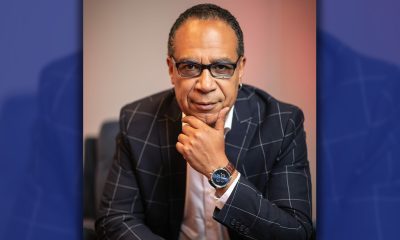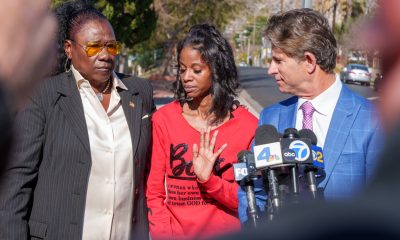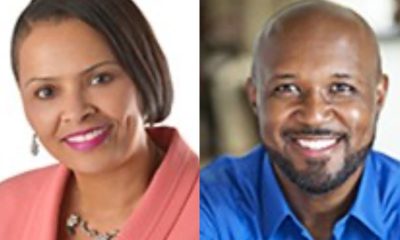Activism
Memphis Police Murder Case Puts Spotlight on California Legislation
The Memphis Police Department has terminated the five officers involved in Nichol’s death: Tadarrius Bean, Demetrius Haley, Desmond Mills Jr., Emmitt Martin III and Justin Smith. Each one was indicted on a second-degree murder charge and faces up to 60 years in prison if convicted
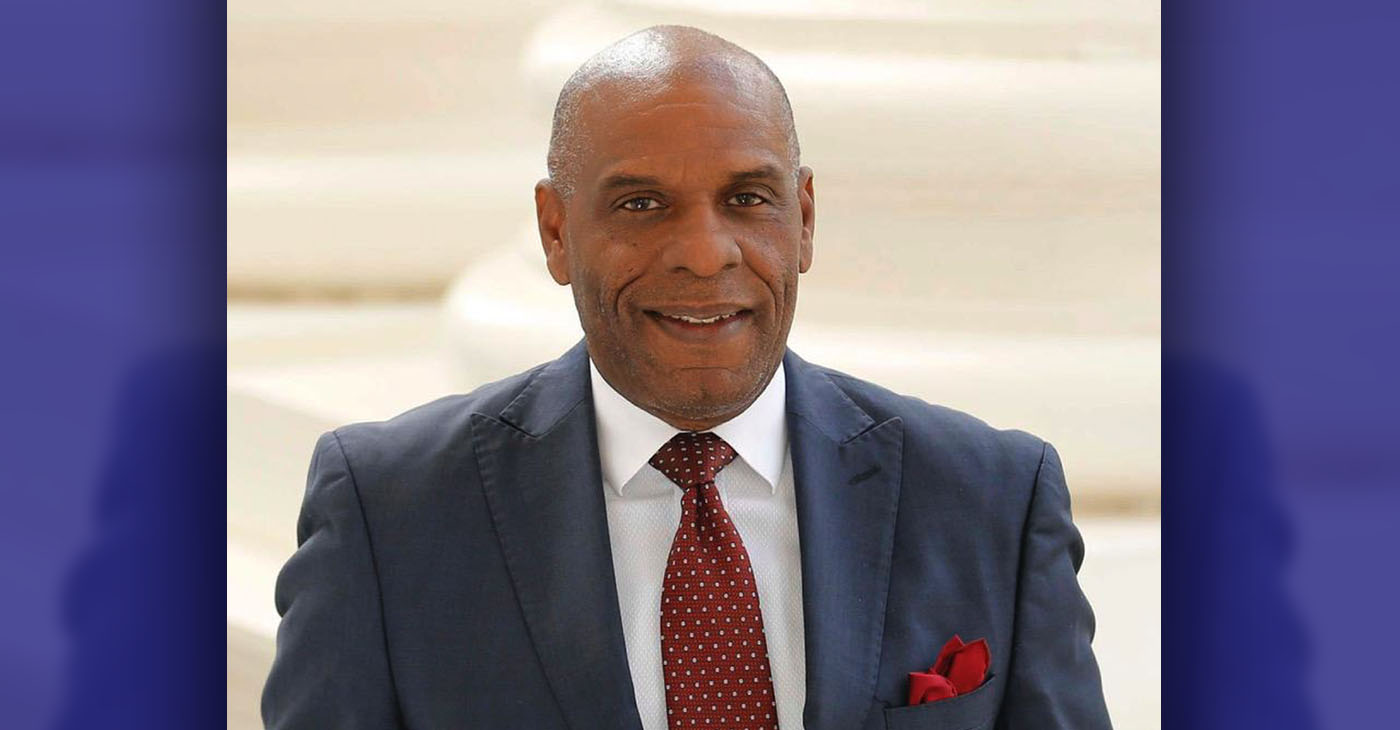
By Charlene Muhammad
California Black Media
There was no “protect and serve.” Just an out of control and outside-the-bounds-of-their-authority attack on an unarmed Black man, said Sen. Seven Bradford (D-Gardena).
Bradford was referring to the beating death of Black motorist Tyre Nichols in Memphis, Tennessee, on Jan. 7.
The Memphis Police Department has terminated the five officers involved in Nichol’s death: Tadarrius Bean, Demetrius Haley, Desmond Mills Jr., Emmitt Martin III and Justin Smith. Each one was indicted on a second-degree murder charge and faces up to 60 years in prison if convicted.
Since the incident, Memphis Police Chief Cerelyn “CJ” Davis has deactivated the city’s SCORPION (Street Crimes Operations to Restore Peace in our Neighborhoods) unit. The 50-person unit of crime suppression officers was launched in 2021 to patrol the city’s hot-spot crime areas.
“The beating and murder of Tyre Nichols by five Memphis Police Officers is brutal and heart-breaking,” said Bradford. “This is yet another example of the need to hold police officers accountable regardless of the color of their skin.”
In 2021, Bradford authored Senate Bill (SB) 2. The law creates a process to make sure police officers who break the law can never wear a badge again in California. “This legislation will save lives,” he said.
Bradford is currently working on SB 50, which would prohibit police in California from making traffic stops for low-level violations. This will reduce the potential for more harm to innocent citizens, said the lawmaker.
“We tend to pass a lot of legislation that doesn’t really have a lot of binding power,” said Cephus “Uncle Bobby” Johnson. His nephew, Oscar Grant, III was shot in the back while subdued on a Bay Area Rapid Transit District station platform on New Year Day in 2009.
The George Floyd Justice in Policing Act does not adequately address some of the most critical issues that we’re dealing with, said Johnson, referring to the bill named for the 46-year-old Black man who was murdered by white cop Derek Chauvin in Minneapolis on May 25, 2020. The officer was convicted of second- and third-degree murder and manslaughter.
The bill would end police restraint techniques, including chokeholds and carotid holds, at the federal level as well as improve police training.
More money for training has been part of the problem, according to Johnson, who supported Assembly Bill (AB) 392, the California Act to Save Lives, which mandates that police officers should only use deadly force when necessary. It was introduced by California Secretary of State Shirley Weber when she was a San Diego Assemblymember. Gov. Gavin Newsom signed that bill in 2019.
“What happened to Tyre impacted so many in California. It re-traumatized many of the families,” said Johnson. “Many families’ wounds have been reopened. Many families’ hopes that there has been some progress have been totally erased,” continued Johnson.
Los Angeles Police Department had a similar program to SCORPION. It was called CRASH (Community Resources Against Street Hoodlums). In the late 1990s, about 70 officers in the Rampart police division were found to have acted like the gangs they were supposed to investigate: planting evidence, framing suspects, and stealing drugs and money.
In Oakland, a group of cops dubbed the “Riders” stood trial for beating, planting evidence on, and stealing drugs and money from alleged suspects in 2000. But a deadlocked jury acquitted them of eight charges and a judge declared a mistrial after they could not agree on 27 other charges. The officers went free.
“Initially, it looks like they’re doing great things but behind the scenes, people in communities will tell you they are terrorized by them,” said Johnson.
Marc Philpart, executive director of the California Black Freedom Fund, organized 26 foundation CEOs and leaders to issue a call to action to push back against systemic barriers. Established two and a half years ago following the murders of Breonna Taylor, Ahmaud Arbery, George Floyd, and countless others, the California Black Freedom Fund is a five-year, $100 million initiative created to mobilize the resources necessary to build Black power and eradicate systemic and institutional racism.
The coalition leaders posted on cablackfreedomfund.org a letter reminding the public of the protests that gave voice to collective outrage, frustration, and grief that permeated Black communities and communities across the country in 2020.
“America recognized that the problem lies not within Black communities, but within structures that institutionalize and perpetuate racial violence and inequity,” they wrote.
Nationally, police killed at least 1,176 people in 2022 — about a hundred a month — making last year the deadliest year on record for police violence since killings began being tracked, according to Mapping Police Violence.
“While the nation is grieving, some are making statements telling Black people how to express their outrage. That’s not the focus of our letter. Our letter is a call to action for everyone concerned with the brutalization of Black people and Black communities,” the leaders wrote.
During a Jan. 29 protest for Nichols and 31-year-old Keenan Anderson, who died after being tasered by Los Angeles police on Jan. 3, Dr. Melina Abdullah, co-founder of Black Lives Matter L.A. and Black Lives Matter Grassroots, said outrage over the police-involved murders of Black men is justified.
“We should shed tears. We should feel it. We should refuse to become numb. Our hearts should break,” shouted Abdullah.
“We should allow ourselves to sob in the dark of the night. And we should demand justice, not just for what’s happening in Memphis, but what’s happening right here in L.A.,” said Abdullah to demonstrators blocking the intersection of Lincoln and Venice boulevards. The location is where Anderson, a cousin of Black Lives Matter Movement co-founder Patrisse Cullors, flagged down a Los Angeles Police Department motorcycle officer seeking help following a traffic collision.
Anderson died in police custody hours later, after being tasered six times on the back of his heart, according to family attorneys. LAPD body cameras detailed what happened during the minor traffic stop, when a man, afraid, called the police for help, said family attorney Carl Douglas. In every way, Anderson was respectful of authority: “Sir! Help me, sir,” the unarmed and compliant man repeatedly pled, Douglas said.
“That officer then calls for backup, and Keenan sees several officers then rushing toward him. His reaction then was a reaction that several Black men would react in a similar situation, one of fear. And that fear drove him to run into the middle of the street,” stated Douglas.
Back in Memphis, Nichols’ brother Michael Cutrer urged people to stand together and fight for their rights. “We definitely speak loud and proud, and we are there marching and protesting and all that’s great, but it has to be about something,” he said.
Activism
2024 in Review: 7 Questions for Equality California Political Director Shay Franco-Clausen
Shay Franco-Clausen is an award-winning public advocate, speaker, political strategist and former elected official. She has contributed her thought leadership to drafting seventeen pieces of legislation in California. Notable among these accomplishments is her role in extending the statute of limitations for felony domestic violence survivors, advocating for the rights of foster youth, preserving endangered open spaces, and championing the restoration of voting rights for individuals on parole.

By Edward Henderson, California Black Media
Shay Franco-Clausen is Political Director for Equality California, the nation’s largest statewide LGBTQ+ civil rights organization.
Franco-Clausen is an award-winning public advocate, speaker, political strategist and former elected official. She has contributed her thought leadership to drafting seventeen pieces of legislation in California. Notable among these accomplishments is her role in extending the statute of limitations for felony domestic violence survivors, advocating for the rights of foster youth, preserving endangered open spaces, and championing the restoration of voting rights for individuals on parole.
California Black Media (CBM) spoke with Franco-Clausen about her successes, frustrations and future plans heading into 2025.
Looking back at 2024, what stands out to you as your most important achievement and why?
In the role that I sit in as the political director for Equality California, we endorsed 216 candidates. I think the one achievement after this election that I’m proud of is that we overturned Prop 8 to protect same-sex marriages here because they’re about to attack our rights on the federal level, come 2025.
I’m glad at least we changed our California constitution to reflect and protect my marriage.
How did your leadership and investments contribute to improving the lives of Black Californians?
I contribute through my lived experience. I may have achieved a lot, but I come from those same communities that are marginalized, East Oakland, East San Jose, Watts. It gives me a different perspective. I am a formerly incarcerated youth who was in foster care. I think I contribute that bit of understanding, and I operate from an equity lens. I’m willing to push people to make them recognize that hey, you cannot forget about Black people. We are the most marginalized.
What frustrated you the most over the last year?
What frustrates me is our inability to recognize that we forget people. I was tapped to work on the Harris campaign from Equality California. And through that, being at that table, I was frustrated that they weren’t listening to Americans and not looking at the data.
The reason Trump won is because he had consistent messaging, and we didn’t debunk it. I think I’m more frustrated that we don’t fully listen to people all the time when they’re critiquing us.
What inspired you the most over the last year?
All those people that came out to support Kamala Harris. I was proud that my son voted for the first time for a Black woman for President.
What is one lesson you learned in 2024 that will inform your decision-making next year?
Be fearless. Sometimes I second-guess myself. I push back, but I could push more because I’m qualified. I have the education, I have the experience, and I know what I’m talking about in all the rooms that I go in. And I must be confident in that.
In one word, what is the biggest challenge Black Californians face?
Prioritization.
We’re still not seen as a priority, but everyone likes to add us to their talking points.
What is the goal you want to achieve most in 2025?
Writing a book. I think it’s important for us to tell our stories.
I am also kicking off my campaign for Hayward City Council.
Activism
2024 in Review: 7 Questions for California Black Chamber of Commerce CEO Jay King
Jay King is also a member of the popular 1980s R&B group Club Nouveau. In his role as an artist and activist, he has stood up for issues affecting underrepresented Californians for over three decades. As the President of the CBCC, King says he is determined to put his mark on developing and expanding the capacity of African American businessmen and women.
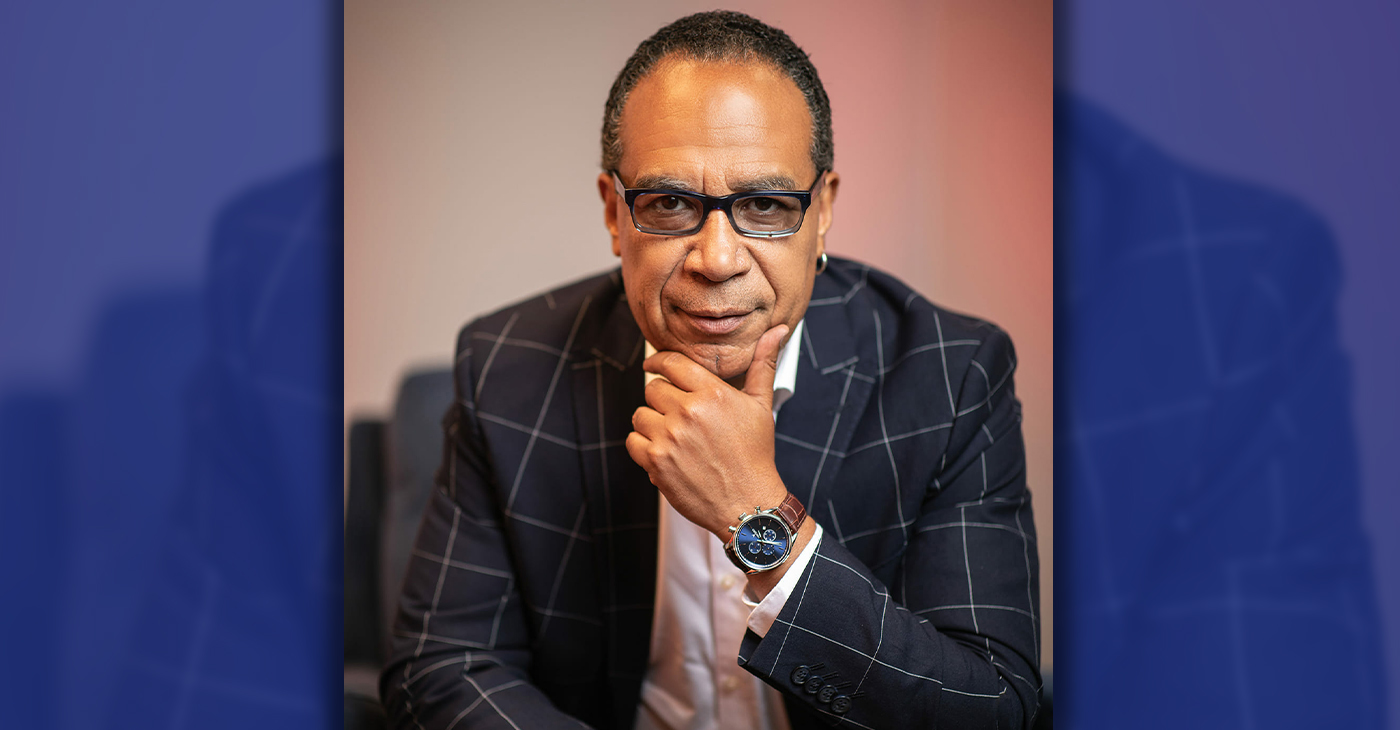
By Edward Henderson, California Black Media
Grammy Award-winning singer and record label executive, Jay King, was elected CEO/President of the California Black Chamber of Commerce (CBCC) in June of 2019.
The CBCC is the largest African American non-profit business organization, representing thousands of small and emerging businesses, affiliates, and chambers of commerce throughout California.
King is also a member of the popular 1980s R&B group Club Nouveau. In his role as an artist and activist, he has stood up for issues affecting underrepresented Californians for over three decades.
As the President of the CBCC, King says he is determined to put his mark on developing and expanding the capacity of African American businessmen and women.
California Black Media (CBM) spoke with King recently. He reflected on the Chamber’s accomplishments, disappointments, lessons learned this year, and goals moving forward.
Looking back at 2024, what stands out as your most important achievement and why?
Making the voices of micro and mini-micro businesses loud, forcing policymakers and other decision makers across the state to pay attention to them. With legislation in place now — AB 1574 and AB 2019 – that mandates that the state and agencies affiliated with the state extend opportunities to micro and mini business owners and give them a chance to participate in government contracting in a real way.
How did your leadership and investments contribute to improving the lives of Black Californians?
I really want to contribute to the world and the state of Black businesses because of the systemic inequities in the past.
Small business, micro businesses and mini businesses are too often overlooked.
I think it would be egotistical to believe that I make any significant impact on my own. Whether it’s the Asian Chamber, Hispanic Chamber and other organizations that are fighting the same fight. I think it’s a collective, so I’m proud to be part of the collective.
What frustrated you the most over the last year?
We say we want to give access to capital to small businesses, yet we continue to create barriers that deny them access.
What inspired you the most over the last year?
Watching some of the small business owners that we worked with — these micro businesses — and seeing the potential and the power that is in front of us.
What is one lesson you learned in 2024 that will inform your decision-making next year?
We have to fight for Black business owners, but they also have to be prepared; because if they’re not, it affects us all down the line.
In one word, what is the biggest challenge Black Californians face?
Self-belief. I think we have been conditioned on victimization and victimhood. We think that if we don’t get the help we need that we will falter.
What is the goal you want to achieve most in 2025?
I want to change the trajectory of micro and mini business owners.
Activism
COMMENTARY: My Sunday School Lesson with President Jimmy Carter
When I saw him, Carter was spry, quick-witted, and kind. The former president wore a bolo string tie anchored by an eight-stone turquoise clasp that dangled below the neck, as he began the lesson on the subject of grief and the death of his 28-year-old grandson. Drawing from scripture (on this particular day, a passage on the persecution of the Thessalonians), Carter said such moments were simply tests of one’s faith, endurance, and hope.
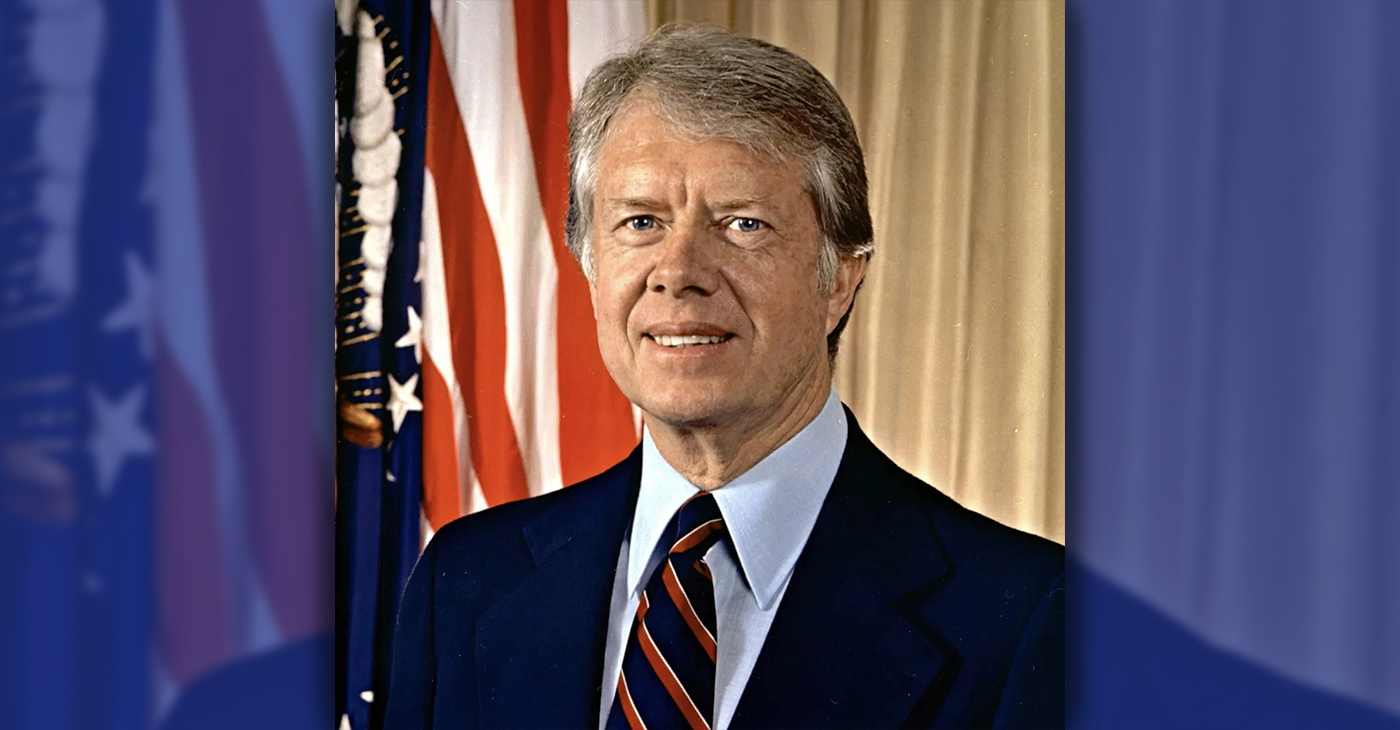
By Emil Guillermo
President Jimmy Carter, at age 100, didn’t make it to the new year, nor the next presidential inaugural.
I’ve always been a big Carter fan, so the news of his passing brought me back to a happy place.
Plains, Georgia, 2016.
I was visiting family not far from the land of presidential peanut farmers. I found myself the only full-blooded Filipino in the room at Maranatha Baptist Church, the spiritual home base for the esteemed No. 39.
President Carter looked fine that Sunday in Plains. But especially fine for his job on that day– to give the Sunday school lesson on what coincidentally was the 15th anniversary of 9/11.
Carter’s health made headlines in 2015 when he disclosed having both brain and liver cancer. It was thought he had just two or three weeks to live.
Everyone’s always underestimating Carter. After treatments, Carter’s forecast turned out not to be true.
When I saw him, Carter was spry, quick-witted, and kind. The former president wore a bolo string tie anchored by an eight-stone turquoise clasp that dangled below the neck, as he began the lesson on the subject of grief and the death of his 28-year-old grandson. Drawing from scripture (on this particular day, a passage on the persecution of the Thessalonians), Carter said such moments were simply tests of one’s faith, endurance, and hope.
“We lack inspiration, we lack the idealism to set our goals high. We’ve been satisfied with mediocrity. And I include myself,” Carter said. People want an average life, instead of aspiring to be, “outstanding, or superb or brilliant or exceptional.”
“I’m afraid that our country and its effect on people of other nations has suffered from the aftermath of 9/11,” Carter said. He “didn’t want to brag,” but said his goal for the country was always to be “superb and be a country that promoted peace and human rights…While I was in office, we never dropped a bomb, lost a missile, or fired a bullet.”
“Since 9/11,” Carter said, “we’ve pretty much abandoned our commitment to human rights as we reacted to terrorism.” He lamented that Afghanistan had become the longest war in American history, a direct outcome of 9/11, as well as the invasion of Iraq, which Carter called “unnecessary.”
Carter, whose administration took us out of an energy crisis, also pointed out how the U.S. is still suffering from a financial crisis that has exposed a deep inequality that has divided us as a people.
“We’ve become distrustful of people who are different from us,” Carter said. “We used to be a proud heterogeneous nation…and now we are fearful…and we’ve become poorer as a country.”
Carter won a Nobel Peace Prize in 2002; a fact that belies how many conservatives view his efforts to find a peace in the Middle East as “anti-Semitic.”
Jimmy Carter’s worldview requires open minds to come together. Too often. these days, that seems nearly impossible.
About the Author
Emil Guillermo is a journalist and commentator He was the first Filipino American to host a national news show in 1989 at NPR’s “All Things Considered.” See Emil Amok’s Takeout on www.patreon.com/emilamok Subscribe to him on YouTube.com/@emilamok1
-

 Activism2 weeks ago
Activism2 weeks agoBooks for Ghana
-

 Activism4 weeks ago
Activism4 weeks agoPost News Group to Host Second Town Hall on Racism, Hate Crimes
-

 Arts and Culture3 weeks ago
Arts and Culture3 weeks agoPromise Marks Performs Songs of Etta James in One-Woman Show, “A Sunday Kind of Love” at the Black Repertory Theater in Berkeley
-

 Activism4 weeks ago
Activism4 weeks agoButler, Lee Celebrate Passage of Bill to Honor Congresswoman Shirley Chisholm with Congressional Gold Medal
-

 Activism3 weeks ago
Activism3 weeks ago‘Donald Trump Is Not a God:’ Rep. Bennie Thompson Blasts Trump’s Call to Jail Him
-

 Activism4 weeks ago
Activism4 weeks agoDelta Sigma Theta Alumnae Chapters Host World AIDS Day Event
-

 Business4 weeks ago
Business4 weeks agoLandlords Are Using AI to Raise Rents — And California Cities Are Leading the Pushback
-

 Bay Area2 weeks ago
Bay Area2 weeks agoGlydways Breaking Ground on 14-Acre Demonstration Facility at Hilltop Mall




